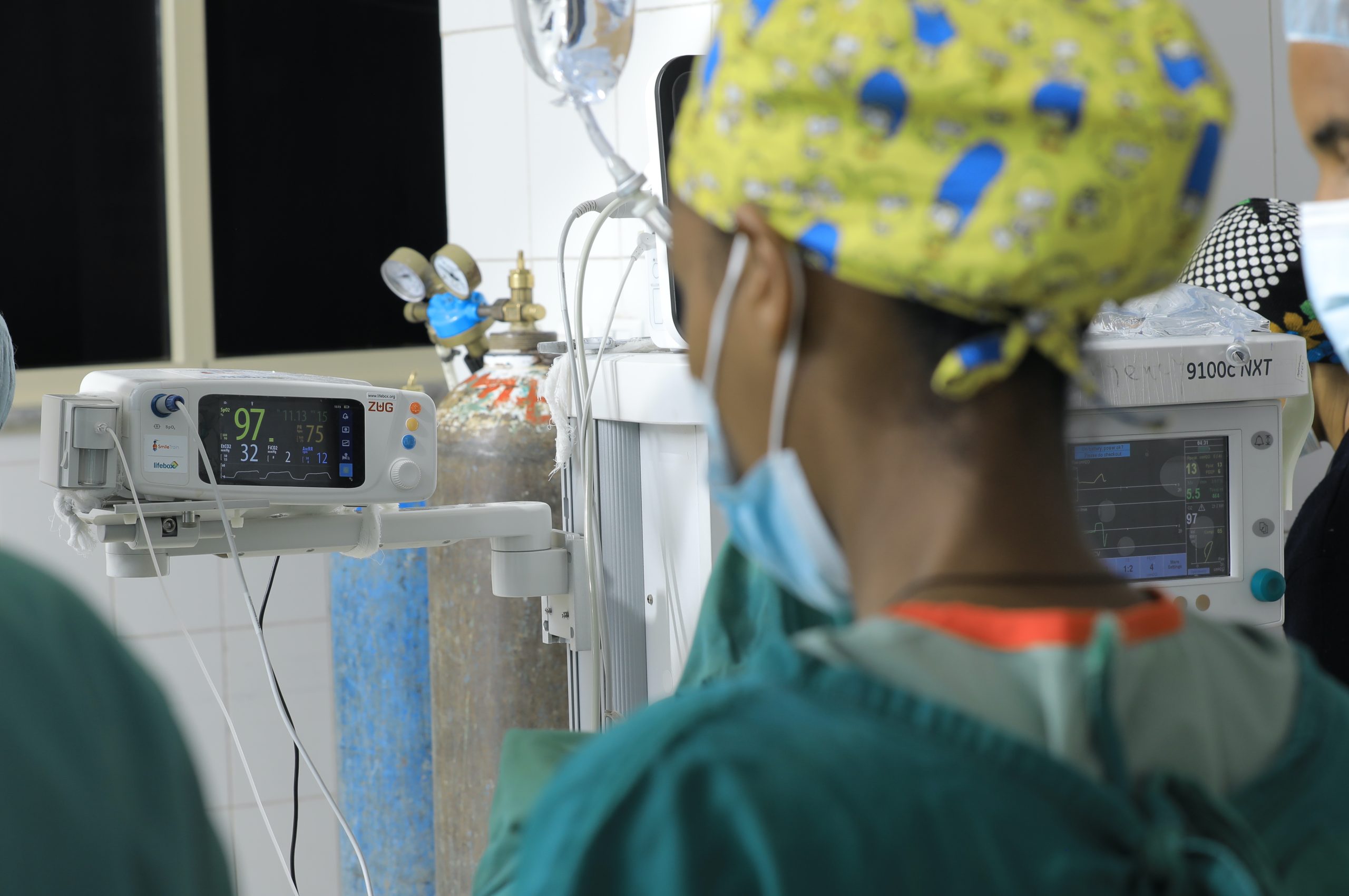
Smile Train-Lifebox tackle major gap in anesthesia safety in low-resource setting operating rooms
Partnership to improve access to high-quality medical device that’s essential for safe surgery and currently absent outside of wealthy countries
NAIROBI/NEW YORK – 16 October, 2023, – Ahead of World Anesthesia Day, the world’s largest cleft organization, Smile Train, and safer surgery nonprofit, Lifebox, come together to highlight and address a 30-year access gap that puts the lives of people undergoing surgery in low-resource settings at significant risk.
Capnography – a monitoring tool that shows if a patient is getting adequate air supply during anesthesia – has been a staple in operating rooms (ORs) in high-income countries for more than three decades. Its introduction in the United States in 1991 led to a dramatic decline in anesthesia-related complications and deaths. Yet, capnography remains largely unavailable across most low-resource setting operating rooms with research showing there is often a 100% gap between the need for capnography and its availability in low-income countries.
A capnograph is the best tool to detect a leading cause of anesthesia-related complications and deaths in low-resource settings: the misplacement of the breathing tube supplying oxygen to the patient. Without an oxygen supply, a patient will suffer catastrophic harm in a matter of minutes, including brain damage and death. The risk of a misplaced breathing tube is greater in children. Increasing available capnography will significantly bridge the gap in anesthesia safety for people—including children—undergoing surgery in low-resource settings.
“Putting a person under anesthesia without a capnograph is like flying blind – you lack the basic information required to keep them safe.” said Dr. Zipporah Gathuya, pediatric anesthesiologist at The Nairobi Hospital, Kenya, and member of the Smile Train Global Medical Advisory Board. “As healthcare providers, we are concerned that our surgical patients are not monitored with this essential device, even though it’s a standard practice in wealthy countries. Capnography shouldn’t be a privilege; it’s a demand for patient safety everywhere, and it’s needed now.”
Working with industry partner Zug Medical Systems, Smile Train and Lifebox are making available the first high-quality, user-friendly, affordable capnograph with sturdy construction and long battery life. The Smile Train-Lifebox Capnograph meets robust specifications for both the monitoring of pediatric patients and use in low-resource settings and underwent rigorous laboratory and field testing.
Concerted efforts are now needed by the World Health Organization to update global guidelines¹ for safe anesthesia to come into line with high-income practice. Change in global guidelines and national practices would eventually drive market demand for more affordable, durable capnographs suitable for use in resource-limited settings.
“Capnography has safeguarded surgical patients in the United States for over 30 years and yet, until now, this lifesaving monitoring tool has unfortunately remained inaccessible for most operating rooms in Africa,” said anesthesiologist Dr. Elizabeth Igaga, Director of Programs Safety at Smile Train. “The availability of the affordable Smile Train-Lifebox Capnograph is the first significant step to bridge this gap. We hope the WHO takes urgent steps to amend the guidelines for capnography use in safe anesthesia, enabling its rapid adoption by low- and middle-income countries. Let’s close this gap and ensure that every surgical patient, regardless of their location, receives the care they deserve.”
This year 350 low-resource operating rooms will be equipped with the new Smile Train-Lifebox Capnograph – alongside training in its use for anesthesia staff – including in Benin, Ethiopia, Philippines, and Uganda. This work is part of the Smile Train-Lifebox Safe Surgery and Anesthesia Initiative to strengthen the safety of pediatric anesthesia and surgical care in low-and middle-income countries.
“For more than a decade Smile Train has worked with Lifebox to equip hospitals across the globe with essential monitoring tools for children undergoing surgery,” said Smile Train President & CEO Susannah Schaefer. “The launch of the Smile Train-Lifebox Capnograph will have a transformative impact on the safety of every child with cleft undergoing surgery – strengthening surgical safety for all surgical patients as a result.”
¹The World Health Organization-World Federation of Societies of Anesthesiologists (WHO-WFSA) must upgrade their capnography recommendations in the International Standards for a Safe Practice of Anesthesia from “recommended for patients undergoing general anesthesia and deep sedation” to the highest category, “highly recommended”—the equivalent of a mandatory standard. Furthermore, the WHO’s Surgical Safety Checklist must include a capnograph—in addition to a pulse oximeter—as anesthesia monitoring equipment required for safe surgery.
About the Smile Train-Lifebox Safe Surgery and Anesthesia Initiative:
The Smile Train-Lifebox Safe Surgery and Anesthesia Initiative is a multi-year strategic partnership elevating the quality and safety of cleft and pediatric surgery. Through innovations and training the Initiative is strengthening surgical systems worldwide. More information here.
About Smile Train:
Smile Train empowers local medical professionals with training, funding, and resources to provide free cleft surgery and comprehensive cleft care to children globally. We advance a sustainable solution and scalable global health model for cleft treatment, drastically improving children’s lives, including their ability to eat, breathe, speak, and ultimately thrive. To learn more about how Smile Train’s sustainable approach has both an immediate and long-term impact, please visit smiletrain.org.
About Lifebox:
Lifebox is a global nonprofit that saves lives through safer surgery and anesthesia. Through tools, training, and partnerships, Lifebox addresses the critical gaps in surgical systems to make surgery and anesthesia safer worldwide. Lifebox’s work focuses on three core areas: anesthesia safety, surgical teamwork, and reducing surgical infection.
Co-founded by Dr. Atul Gawande in 2011, Lifebox has worked in 116 countries and trained more than 12,000 healthcare providers to make 181 million surgeries safer. To learn more about Lifebox, visit www.lifebox.org.

